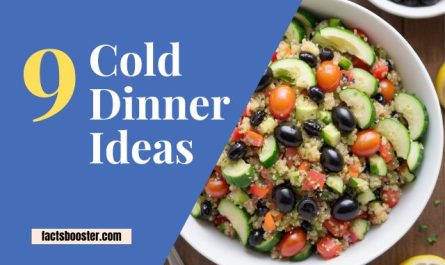H. pylori, a bacterium found in the stomach lining, affects over half the global population, with a fraction developing significant health challenges such as ulcers and gastritis. Interest has surged in natural remedies, what kills H. Pylori naturally, including foods that kill H. Pylori, marking a pivotal shift towards holistic health approaches.
Recognizing the role of these natural treatments is vital, as is integrating them with conventional medical therapies to ensure comprehensive management of H. Pylori infections.
Key Takeaways:
- Global impact: H. Pylori is a prevalent concern, necessitating attention towards effective management strategies.
- Natural remedies: Exploring what kills H. Pylori naturally offers alternative paths alongside medical treatments.
- Integrated approach: Combining natural remedies with conventional treatments promises a more holistic strategy against H. Pylori.

Natural Remedies to Combat H. Pylori
Natural remedies offer a beacon of hope for many battling H. Pylori. Studies have illuminated the power of substances like honey, which harbors potent antibacterial qualities capable of decimating H. Pylori populations.
Further research unveils that compounds found in green tea and broccoli sprouts may impede the bacteria’s growth, acting at the biochemical level to disrupt their cellular processes. These findings highlight the potential of dietary choices in managing infections naturally.
What Kills H. Pylori Naturally
In seeking relief from H. Pylori, many have turned to natural remedies. Foods that kill H. Pylori, alongside natural supplements, emerge as potent allies. These substances provide a gentler approach compared to traditional medications.
They underscore the significance of diet in battling infections. This pursuit aims for holistic well-being, integrating remedies like honey and garlic into daily consumption. Thus, identifying what kills H. Pylori naturally is crucial for those preferring alternative methods.
1. Honey
Honey, especially Manuka honey, has shown promising antibacterial effects against H. Pylori. Studies have documented its potential to disrupt this stubborn bacterium, which lurks in the stomach lining and causes various gastric issues.
Integrating honey into one’s diet can be as simple as adding it to tea, spreading it on toast, or enjoying it with yogurt. Its versatility and natural sweetness make honey not just a potential fighter against H. Pylori but also an enjoyable addition to daily meals. (1)
2. Garlic
Garlic harbors potent antimicrobial compounds that have shown promising effects against H. Pylori. Studies highlight allicin, garlic’s primary active component, as instrumental in battling this stubborn bacteria.
By integrating garlic into your diet, you enhance your body’s defense mechanism naturally. Suggestions for inclusion range from adding fresh garlic to sauces and marinades to consuming it raw for maximum benefits.
This practice not only enriches flavor profiles but also contributes significantly to your gastrointestinal health. (2)
Read more:
3. Green Tea
Green tea holds powerful polyphenols known to combat H. Pylori naturally. These antioxidants have shown promise in recent studies, suggesting their role in inhibiting the bacteria’s growth.
For optimal results, incorporating two to three cups of green tea into your daily regimen might offer protective benefits against this pervasive gastric bacterium. This simple addition to your diet could not only fortify your stomach’s defenses but also enhance overall health. (3)
4. Broccoli Sprouts
Sulforaphane, a compound in broccoli sprouts, has garnered attention for its potential to eradicate H. Pylori. Researchers have unearthed evidence that this compound battles the bacteria effectively.
Studies highlight sulforaphane’s action on H. Pylori, even suggesting it could suppress bacteria-related inflammation. To harness these health benefits, include broccoli sprouts in daily meals.
They can be added to salads or sandwiches for an easy nutrient boost. This integration offers a promising avenue for natural H. Pylori management. (4)
5. Turmeric
Curcumin, the vibrant yellow compound in turmeric, has emerged as a powerful foe against H. Pylori infections. Its anti-inflammatory and antibacterial properties have been documented in several studies.
Researchers discovered that curcumin can disrupt H. Pylori growth, offering hope for those seeking natural remedies. To incorporate turmeric into your regimen, consider adding it to smoothies, soups, or rice dishes.
Sprinkling turmeric on vegetables before roasting enhances both flavor and health benefits. For a direct approach, turmeric supplements may provide a concentrated dose of curcumin, but consult a healthcare provider before starting any new supplement. (5)
6. Cranberry Juice
Cranberry juice has been researched for its protective effects against H. Pylori. Studies have shown this vibrant beverage creates a barrier that may prevent the bacteria from attaching to the stomach lining.
In essence, cranberry juice doesn’t directly kill H. Pylori, but it can significantly reduce the bacteria’s ability to cause infection and symptoms. Most research suggests daily consumption can be beneficial.
For optimal results, incorporating a glass of unsweetened cranberry juice into your daily diet could help in managing H. Pylori levels. It’s a simple, natural addition to routine health practices that focuses on prevention and supports overall gastric well-being. (6)
7. Licorice
Licorice has emerged as a powerful ally in the fight against H. Pylori infections. This aromatic root harbors compounds that promote gut health and battle bacterial presence.
Research underlines its effectiveness; one study highlighted how licorice could diminish the bacterium’s ability in the stomach lining. For those seeking to incorporate licorice into their regimen, a practical approach involves consuming licorice tea or supplements.
However, it’s crucial to adhere to recommended doses to avoid adverse effects. A balanced intake of licorice has been shown to support the stomach’s healing process, making it a valuable component of natural remedies against H. Pylori. (7)
8. Probiotics
Probiotics play a crucial part in bolstering and preserving your gut’s microbiome, which may act against H. Pylori dominance. Studies have pinpointed particular strains like Lactobacillus and Bifidobacterium as warriors in this battle, offering a shield to your stomach lining.
Incorporating these through fermented foods like yogurt, kefir, and sauerkraut or opting for supplements could tilt the scales in your favor. By fostering a robust gut environment, these beneficial bacteria impose hurdles to the proliferation of harmful pathogens, thus aiding in the management of H. Pylori naturally.
Supporting a Healthy Gut Environment
A balanced diet plays a pivotal role in maintaining a healthy gut environment, critical in keeping H. Pylori at bay. Fibrous foods fuel beneficial gut bacteria, while fermented offerings introduce helpful microbes.
Adequate hydration ensures the digestive system operates smoothly. Together, these dietary choices create conditions unfavorable for H. Pylori to thrive. Beyond nutrition, regular stress-reducing activities, sufficient rest, and exercise have shown effectiveness in reinforcing gut health.
Their impact extends to potentially diminishing the risk of H. Pylori-related complications. Thus, cultivating a lifestyle centered on holistic wellness principles becomes a powerful ally in the fight against this pervasive bacterial invader.
Lifestyle Changes to Aid Natural Remedies
Lifestyle modifications play a crucial role in amplifying the potency of natural remedies aimed at combating H. Pylori. Stress management emerges as a vital technique. You might have found relaxation and mindfulness exercises have eased digestive discomfort in the past.
These practices will likely aid in creating an internal environment less hospitable to H. Pylori. Regular physical activity stands out among recommendations. Research has consistently shown that exercise can enhance gastric health, facilitating a faster recovery.
Adequate sleep cannot be overstated. It has proven indispensable in healing and immune function, directly impacting how efficiently the body can fight infections, including H. Pylori.
Integrating these lifestyle changes with a regimen of natural remedies not only targets the bacteria directly but also fortifies the body’s defenses against future infections.
Embracing a holistic approach to health, by including stress reduction, physical fitness, and plenty of rest, enhances your well-being, enriching the effectiveness of natural treatments for H. Pylori.
Conclusion
Natural remedies, derived from research and traditional knowledge, offer promising outcomes against H. Pylori. Certain foods, such as turmeric and garlic, exhibit antibacterial properties that combat the bacteria. Probiotics in fermented foods contribute to a healthy gut environment, inhibiting H. Pylori growth. These remedies and lifestyle changes provide a multifaceted approach to managing H. Pylori infection.


